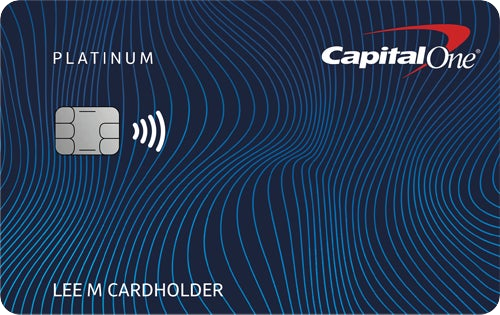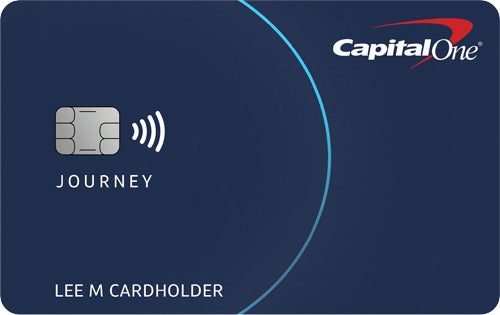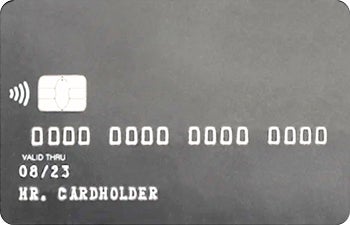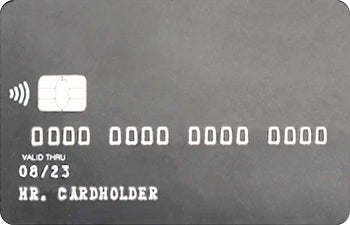'ZDNET Recommends': What exactly does it mean?
ZDNET's recommendations are based on many hours of testing, research, and comparison shopping. We gather data from the best available sources, including vendor and retailer listings as well as other relevant and independent reviews sites. And we pore over customer reviews to find out what matters to real people who already own and use the products and services we’re assessing.
When you click through from our site to a retailer and buy a product or service, we may earn affiliate commissions. This helps support our work, but does not affect what we cover or how, and it does not affect the price you pay. Neither ZDNET nor the author are compensated for these independent reviews. Indeed, we follow strict guidelines that ensure our editorial content is never influenced by advertisers.
ZDNET's editorial team writes on behalf of you, our reader. Our goal is to deliver the most accurate information and the most knowledgeable advice possible in order to help you make smarter buying decisions on tech gear and a wide array of products and services. Our editors thoroughly review and fact-check every article to ensure that our content meets the highest standards. If we have made an error or published misleading information, we will correct or clarify the article. If you see inaccuracies in our content, please report the mistake via this form.
Best credit cards for college students





If you're wondering what the best credit cards for students are, you've landed in the right place. Once a student reaches adulthood, having access to a student credit card gets them closer to financial independence by helping them establish a credit history and build a good credit score.
Student credit cards are specifically created for college students who have limited credit or who are just starting to build their credit.
These types of cards typically have low credit limits and charge no annual fees. Students can use them to build a credit history and become more financially responsible. Having a credit card as a student can also be handy in case of emergencies or unexpected accidents when away from home.
The Capital One Platinum Secured Card, as the name suggests, is a secured card. That means cardholders have to make a one-time, refundable security deposit upon approval. If you deposit the minimum of $49, the starting credit limit will be $200. If you deposit more than $200, your credit limit will reflect that. For example, deposit $400 to get a credit limit of $400. The max you can deposit is $1,000.
Deposit as much as you comfortably can to start. Having a higher line of credit is always better than a lower one, and the deposit can be refunded by Capital One after showing responsible use by always paying on time.
The card doesn't have any rewards, but it's a good way to build a positive credit history while ironing in good credit card habits like paying on time. And, Capital One will automatically consider you for a credit line increase in as little as six months, provided you've been using the card responsibly.
Pros
- Low minimum deposit required
- Build good credit habits
- Zero fraud liability protection
- Potential easy credit limit increase
Cons
- No rewards
- Low starting credit limit (depending on how much was deposited)
- Few perks

Capital One Platinum Secured Credit Card
- Earn 1% cash back on all your purchases. Pay on time to boost your cash back to a total of 1.25% for that month
- Earn 1% cash back on all your purchases. Pay on time to boost your cash back to a total of 1.25% for that month
The Journey Student Card from Capital One is a good option for building responsible habits. The card earns 1% cash back for every purchase, but that rate is increased to 1.25% after paying on-time each month. So not only will students earn a small return on their spending, but they'll get in the habit of paying on time.
As a nice touch, the card features a $60 streaming credit for all of your binge-watching needs. Pay your streaming sub with the card to get a $5 credit each month for 12 months.
In addition, students can access Capital One's CreditWise tool to track their VantageScore 3.0 credit score, but it should be noted everyone can use this service, not only Capital One cardholders. Capital One will also consider you for a credit limit increase in as little as six months after showing responsible behavior.
Pros
- 1.25% cash back
- Build responsible habits
- No annual fee
- $60 streaming credit
- Easy potential credit limit increase
Cons
- Low rewards
- Few perks

Journey Student Credit Card from Capital One
- Earn 5% cash back on everyday purchases at different places you shop each quarter like grocery stores, restaurants, gas stations, and more, up to the quarterly maximum when you activate. Plus, earn unlimited 1% cash back on all other purchases-automatically.
- Earn unlimited 1% cash back on all other purchases - automatically.
- Earn 5% cash back on everyday purchases at different places you shop each quarter like grocery stores, restaurants, gas stations, and more, up to the quarterly maximum when you activate. Plus, earn unlimited 1% cash back on all other purchases-automatically.
- Earn unlimited 1% cash back on all other purchases - automatically.
The Discover it Student Cash Back stands among the most rewarding credit cards available to students. However, it's a bit more to manage than a flat-rate cash back card like the Journey Student Card from Capital One.
The Discover card earns 5% cash back (up to $1,500 spent per quarter, then 1%; activation required) for bonus categories that rotate every quarter. The bonus categories cover expenses like groceries, gas, dining out, and Amazon purchases, among others. But keep in mind you need to activate the categories every quarter, otherwise you'll only earn 1% cash back and miss out on a ton of rewards.
But what makes this card truly rewarding is Discover's Cash Back Match. Discover will double the rewards you earn during your first year with the card, meaning you'll earn 10% cash back for its rotating categories and 2% cash back for everything else. That's hard to beat.
It has no annual fee or foreign transaction fee either. So it's still a solid pick for students studying abroad.
Pros
- Double the rewards for the first year
- Intro 0% purchase APR (then 17.99% to 26.99% variable)
- No annual fee
- No foreign transaction fee
Cons
- Few benefits
- Complicated reward program for beginners

Discover it® Student Cash Back
- Earn 2% cash back at Gas Stations and Restaurants on up to $1,000 in combined purchases each quarter, automatically.
- Earn 1% unlimited cash back on all other purchases – automatically.
- Earn 2% cash back at Gas Stations and Restaurants on up to $1,000 in combined purchases each quarter, automatically.
- Earn 1% unlimited cash back on all other purchases – automatically.
With the Discover it Student Chrome, earn 2% cash back (up to $1,000 in combined purchases each quarter; then 1%) for filling up the tank or ordering that late-night DoorDash. It doesn't carry an annual fee, and the rewards you earn will be doubled during your first year with the card thanks to Discover's Cash Back Match.
It even features a 0% intro APR for purchases for six months (then 17.99% to 26.99% variable. That means any purchases you make during that time won't earn any interest, saving you money. And, you can keep an eye on your FICO score from your TransUnion credit reports.
Pros
- Rewards for purchases you're already making
- Double the rewards for the first year
- No annual fee
- Intro 0% APR for purchases
- Check your FICO score
Cons
- Few perks
- Takes awhile to get a credit limit increase

Discover it® Student chrome
Student credit card FAQs
Student credit cards provide a real way to manage money in adulthood during the transitionary period of college life. Whether you're a parent researching credit cards for your child or you are a new student ready for a credit card, check out these frequently asked questions to help you with your search.
What are student credit cards?
Student credit cards are credit cards designed with financial features that cater to students. While there may be exceptions, the majority of credit cards marketed as student credit cards will require proof of school enrollment when applying. Student credit cards are available to students who are 18 years and older.
Student credit card applicants are likely to have zero or minimal credit history, so student credit cards typically have higher interest rates than consumer credit cards. Anyone with little demonstrated card history is considered a higher risk cardholder. Student credit cards are typically easier to qualify for than standard credit cards.
Student cards also tend to have lower lines of credit compared to other credit cards because lenders know students likely have limited income. However, some cards increase lines of credit once several payments are made on time.
A student card can help students build credit history, create responsible habits, and increase their credit score.
How do you get a student credit card for the first time?
Students who are interested in a credit card can apply in person or online. The student will usually have to provide their birthday, social security number, citizenship status, income, school information and monthly rent payment.
For students who have no credit, they'll need to prove they have the assets or independent income available to pay at least a monthly minimum credit card bill. Students can also have a parent or guardian co-sign for a credit card. Students who have bad credit should consider a credit card specifically designed for building credit, like the Capital One Platinum Secured Credit Card.
If a student can't qualify for a credit card, a family member can look into adding the student as an authorized user on their credit account. If the primary cardholder has a good payment history, the authorized user can also get a boost in credit.
Also: Four reasons to add your teen as an authorized credit card user
What is the minimum age to get a credit card?
18 years old. However, students younger than 18 can become an authorized user for another credit card to start building credit.
How can college students establish a credit history quickly?
A way for a college student to establish a credit history quickly is to become an authorized user on a family member's credit card. If the primary account holder makes responsible payments, that can also positively impact the student's credit score. Students can be as young as preteens and become authorized users on some credit cards.
Do student credit cards build credit?
Yes, student credit cards build credit. Making payments on time and in full can positively impact a credit score and contribute to credit history. Students using their own credit cards will benefit most by only making purchases they can pay off on time.
What is the easiest student credit card to get?
Secured cards, like the Capital One Platinum Secured Card, are the easiest to qualify for. Students just have to pay a one-time, refundable deposit of $49, $99, or $200. You can pay more if you so choose, however, to get a higher starting credit limit.
Before you apply for a credit card, it's best to learn about the card's features and consider the credit level required for approval. If a student meets the requirements, the credit card application process is relatively simple.
How can you maximize your student credit card?
- Compare all rewards before applying: Choose a card that provides the maximum rewards for your spending habits, especially if the rewards rotate quarterly.
- Know your due dates: Making on-time payments is the best way to increase your credit score. Some cards let you setup automatic payments.
- View your card as a tool: Use your card as a tool for practicing financial responsibility.Don't spend money you don't have unless it's an emergency and pay your bill in full and on-time.
- Protect your credit score: As you build up your credit score, learn about factors that can bring it down. Applying for too many cards and opening or closing accounts often can negatively impact your score.
Can you pay your student loans with a credit card?
Federal student loan servicers do not allow credit card payments for student loans. If your student loan is through a private firm, you may be able to use a credit card, but transaction fees may apply.
Also: When paying bills with a credit card makes sense -- and when it doesn't
Be careful if you're considering using a credit card to pay for a student loan because you're transferring credit card debt to another form of debt, which can have higher penalties and interest. You'll have to factor in interest rates, fees and rewards to determine what is best for your financial situation.
What should you do with your student credit card after you graduate?
You may be wondering if you can hold on to a student credit card once you're no longer a student. The short answer is: yes. If you're a fan of the student card's features, you can keep on using the card or simply keep the account open.
Let your lender know you've graduated or left college, but that you would like to continue using the card. If you're working full-time, you may qualify for a higher credit line. Additionally, you may be able to ask for a lower APR if you've been paying your monthly payments on time. You can also ask your credit card provider to convert your card to a non-student card once you've graduated. Discover offers non-student versions of both the Cash Back and Chrome.
There's always the option of closing your account, too. But you should be aware that it can negatively impact your credit history and, thus, your credit score. When you close your account, you also decrease your total credit available.
[This article was first published on The Simple Dollar in 2020. It was updated in March 2022.]